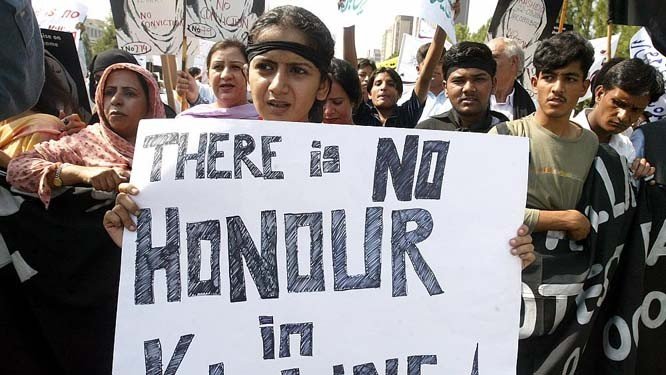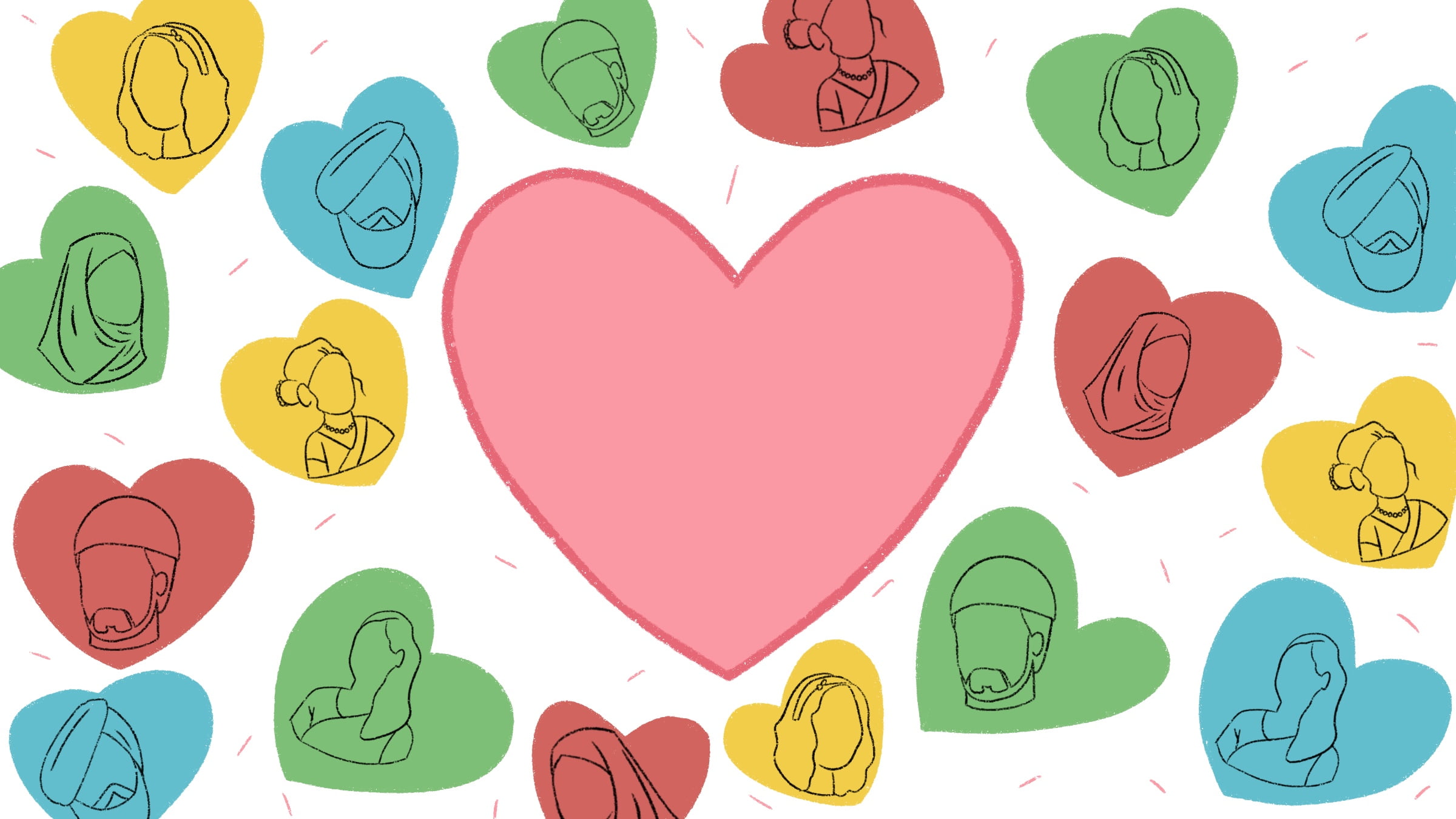On 14th September 2018, a young, Dalit man Pranay Perumalla was murdered by the father of his wife, Amrutha Varshini. Amrutha belonged to the so-called ‘upper’ caste group in Hyderabad in the South Indian state of Telangana.
A few months ago, the couple entered into an inter-caste marital union against the wishes of the family of Amrutha, and the cost that Pranay paid for marrying his love was his own’ life.’ Several cases like these, popularly known as ‘honour killing’, keep on hitting newspaper headlines across the length and breadth of the country every now and then, wherein either the man or the woman, or in some cases, both, are murdered by their families, relatives, neighbours, village and caste panchayats for entering into an inter-caste marital alliance.
These killings cannot be seen as a simple reaction to the exercise of free will on the part of young men and women in choosing their own partners; there is certainly much more to them. ‘Honour killings,’ as they are called, are deeply rooted in the caste-based, Brahmanical, and patriarchal norms of societal organization and kinship in the Indian subcontinent. Castes are essentially ‘endogamous’ social groups, and the ‘Brahmanical code of Conduct’ decides for every individual and social group falling within its ‘fold’ their position, location, occupation, as well as rules pertaining to romantic relationships and marriage. The unique interplay of patriarchy and Brahmanism on the subcontinent has created the social grids for all the members of society to follow, the breach of which is dealt with very harshly, which can vary from disagreement and ex-communication, to harassment, including extreme forms of violence such as rape and murder.
A few months ago, the couple entered into an inter-caste marital union against the wishes of the family of Amrutha, and the cost that Pranay paid for marrying his love was his own’ life.’ Several cases like these, popularly known as ‘honour killing’, keep on hitting newspaper headlines across the length and breadth of the country every now and then, wherein either the man or the woman, or in some cases, both, are murdered by their families, relatives, neighbours, village and caste panchayats for entering into an inter-caste marital alliance.

The contradictory role of state machinery is very crucial and deserves much more attention and critical scrutiny than it has been given till now in the cases of ‘honour killings’ and harassment of inter-caste couples in India. While the legal and constitutional mandate endows the Indian state to secure the Right to Choice (a fundamental right under Article 21 of the Indian Constitution) of men and women belonging to different caste groups to choose their partners without any interference and inhibition from outside; the functioning of state machinery is severely compromised owing to the disproportionate presence and domination of so-called ‘upper-caste’ groups and social elites in positions of power including the lower and higher judiciary, police and bureaucracy.
These killings cannot be seen as a simple reaction to the exercise of free will on the part of young men and women in choosing their own partners; there is certainly much more to them. ‘Honour killings,’ as they are called, are deeply rooted in the caste-based, Brahmanical, and patriarchal norms of societal organization and kinship in the Indian subcontinent. Castes are essentially ‘endogamous’ social groups, and the ‘Brahmanical code of Conduct’ decides for every individual and social group falling within its ‘fold’ their position, location, occupation, as well as rules pertaining to romantic relationships and marriage.
Inter-caste couples are known to have faced harassment at the hands of police machinery, especially in cases wherein one of the partners belongs to socially marginalized sections of society. This is also visible in the highly regressive and irresponsible comments and ruling passed by different courts functioning across the country pertaining to such cases of Right to Choice. The Punjab and Haryana High Court, in May 2021, while dismissing the plea of a live-in-couple for seeking protection from the family members and relatives of the woman involved, commented that — “If such protection, as claimed, is granted, the entire social fabric of the society would get disturbed.”
Despite the ever-rising cases of honour killings in different parts of the country, the legal edifice of the Indian state, to date, doesn’t recognize the murders/killings in the name of ‘honour’ as a criminal act of a very specific nature which is deeply rooted in the casteist and patriarchal nature of Indian society, distinct from the other acts of murders, the motives of which can very well go beyond the concerns pertaining to maintenance of caste-order and anxieties regarding control of women’s sexuality.
The unique interplay of patriarchy and Brahmanism on the subcontinent has created the social grids for all the members of society to follow, the breach of which is dealt with very harshly, which can vary from disagreement and ex-communication, to harassment, including extreme forms of violence such as rape and murder.
The Prevention of Interference with the Freedom of Matrimonial Alliances (in the Name of Honour and Tradition) Bill, 2010, which was recommended in the Law Commission of India Report Number 242, is still far from becoming a law to deal with cases of harassment, ex-communication, and killings of inter-caste couples. While Rajasthan became the first Indian state in 2019 to pass such a bill in the state assembly, the bill is yet to receive the Presidential assent to become a full-fledged law. It is no wonder, then, that despite almost all Indian states having their own versions of Dr.Ambedkar Scheme for Social Integration through Inter-caste marriage and a huge network of governmental and non-governmental/voluntary organizations like Love Commandos, Dhanak, People’s Union for Civil Liberties, etc. for providing shelter and legal aid to inter-caste couples, the percentage of inter-caste marriages remains as low as 5 percent of all marriages in the country according to a 2016 study conducted by National Council of Applied Economic Research in India. Another study conducted by Indian Statistical Institute in 2017 indicates that the percentage of Inter-caste marriages is as low as 5.2 percent in rural India and 4.9 percent in the case of urban areas.
Various scholars and activists who have envisioned a ‘caste-less’ society have argued that inter-caste marriages are a necessary, if not sufficient condition, for securing egalitarian bases of social organization on the subcontinent. Dr. Ambedkar is one of the earliest scholars who identified the deep-rooted intertwining between the institution of caste and gender on the subcontinent to argue that it is precisely through control over women’s sexuality that the caste order has been able to sustain itself for centuries.

Women are considered as the ‘gateway’ of caste society and, therefore, the ‘potential threats’ to the generational purity of blood that so-called ‘upper castes’ have violently been able to preserve by imposing endogamy and denying upper-caste women the agency to marry outside their own castes. It would be a mistake to assume that all kinds of inter-caste marriages are frowned upon by the believers of Brahmanism. As has been argued by a variety of feminist scholars, including Sharmila Rege, Uma Chakravarty, Anupama Rao, Sunaina Arya and several others, Brahmanical Patriarchy places men and women belonging to different caste groups in different positions which are hierarchically placed. Such a scheme of social organization designates that bodies of women belonging to ‘higher’ and privileged castes are ‘sacred’ and therefore deserve ‘protection’ through effective control of their sexuality (especially in connection with their relationship with men belonging to non-Dwija Savarna caste groups), while bodies of Dalit, Bahujan and Adivasi women remain largely ‘accessible’ to men belonging to Dwija Savarna Castes.
While the legal and constitutional mandate endows the Indian state to secure the Right to Choice (a fundamental right under Article 21 of the Indian Constitution) of men and women belonging to different caste groups to choose their partners without any interference and inhibition from outside; the functioning of state machinery is severely compromised owing to the disproportionate presence and domination of so-called ‘upper-caste’ groups and social elites in positions of power including the lower and higher judiciary, police and bureaucracy.

Prem Chowdhry’s work shows how hypergamous marriages, popularly known as ‘anuloma vivah’ (in which women belonging to marginalized caste groups marry men from upper caste groups) still remain relatively ‘acceptable’ in the state of Haryana while the reverse, i.e., hypergamous marriages popularly known as ‘pratiloma vivah'(in which women marry men from communities considered lower to theirs in the caste hierarchy) remain highly contentious and invite massive resistance and violence at the hands of social elites.
From Jotirao Phule’s idea of Satyashodhak Marriages to Periyar’s understanding of Self-Respect Marriages, there remained an expectation and hope that breach of rules of caste endogamy is an effective tool for breaking down the rigid caste society. However, a sneak-peek into the lives of Dalit-Bahujan-Adivasi women who have married men belonging to ‘higher’ caste groups suggests that even inter-caste marriages can become potential spaces for further caste and gender-based discrimination and marginalization of these women, severely constricting their agency and autonomy in important matters of their lives.
Also read: Of Honour Killings And Love Stories In An Era Ruled By Fear And Hate
One of our friends from a Dalit Community who did marry a man belonging to an upper-caste told us in a conversation that her in-laws asked her to separate her room and kitchen from the ‘main portion’ of the house because it is impossible for in-laws to ‘tolerate’ a Dalit woman in their house!! Her story is not her story alone. Her words compel one to think, can inter-caste marriages really shatter the high walls of caste erected for centuries on the soil of the sub-continent? The ever-rising number of killings in the name of ‘honour’ seems to suggest that the answer is, “Yes! and no!”
Khushbu Sharma is Research Scholar at the Centre for Political Studies, Jawaharlal Nehru University, New Delhi. Khushbu can be found on Instagram and Facebook.
Mahesh Choudhary is an independent Journalist and Researcher. Mahesh can be found on Facebook, Instagram and Twitter.
Featured Image Source: Shreya Tingal For Feminism In India





Sad..govt should ban dowry, bhaat parampara and alcohol complety, and reward those who report cases..online portal or complaint number should be made and identity should be hide of reporter..
Police agency’s personal should be equipped with bodycams, so they do their duty honestly….
Those who do these crime , their property should be ‘kurk’ …
Samoohik vivah caremony should be organised by govt ..
But they don’t want to do because they don’t want to loose their votes….
Modi is overrated, but peoples have no choice., opposition is finished…
All Politicians work for only votes, new youth should join politics…
Honestly saying, if i m the president or anything like good dictator of country,
I just ban marriage ,i mean wedding caremony… religious marriage will be banned …only live in relationship will be allowed….marriage system itself is very bad artificial system….
Relationship are natural…
Real problem of india is that ,in politics about all Politicians are old age highly conservative orthodox uneducated Village type people.and u know that most of the peoples in society are just stupid in india..except modern youth …and these idiots runs country…they only know politics and work for their political careers only and votes…they won’t understand real problems of society……
Sad…….
They think that Indian culture customs traditions believes society is best…and Western is bad..but in reality Indian culture is worst… western is best……western people enjoy true natural Liberty….here in india specially in villages ,peoples interfere judge and bark in other peoples live, they don’t mind their business…while in western they mind their own life…so thatswhy good society